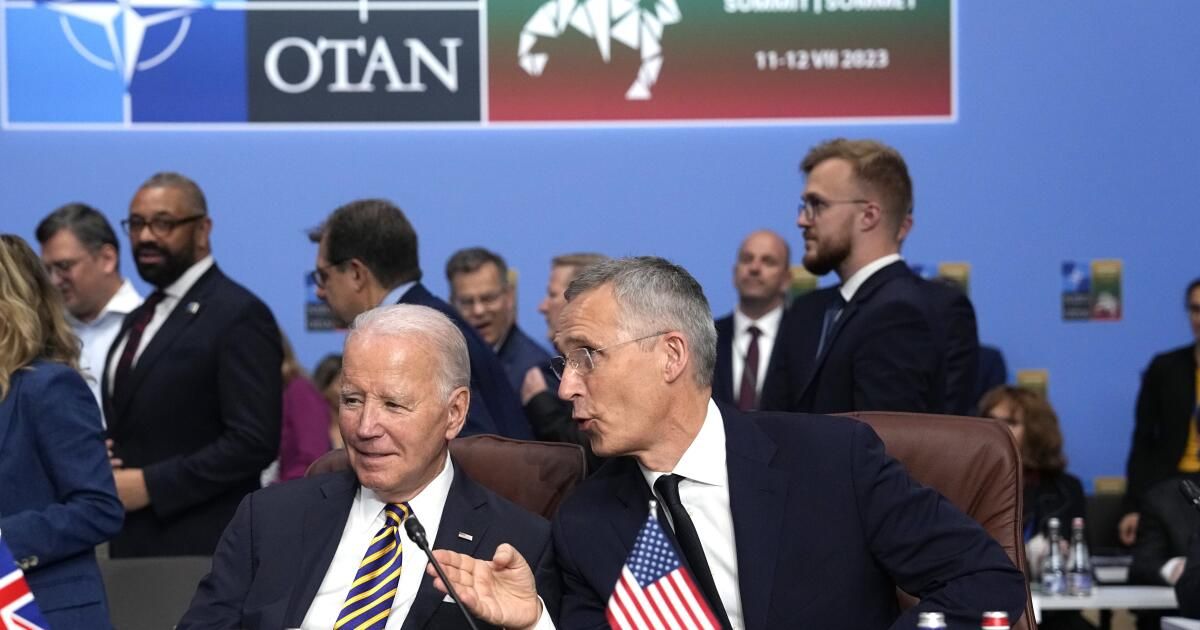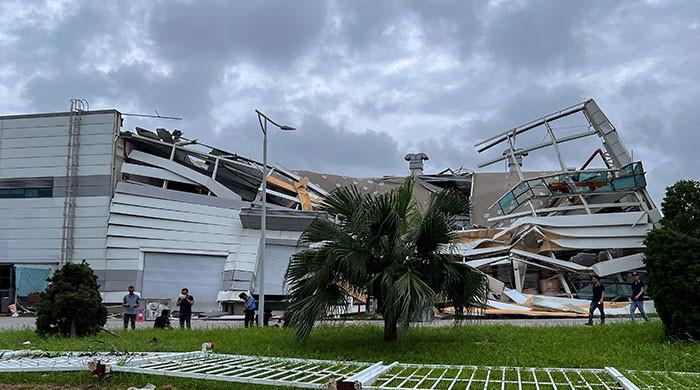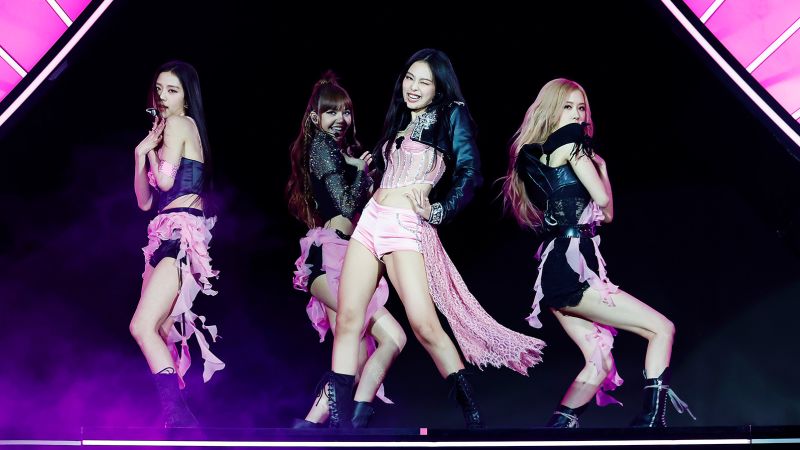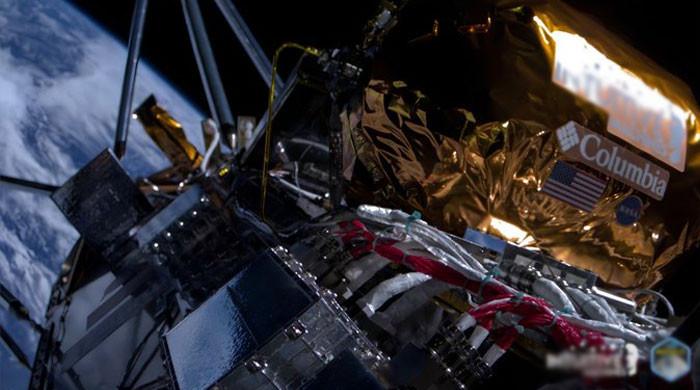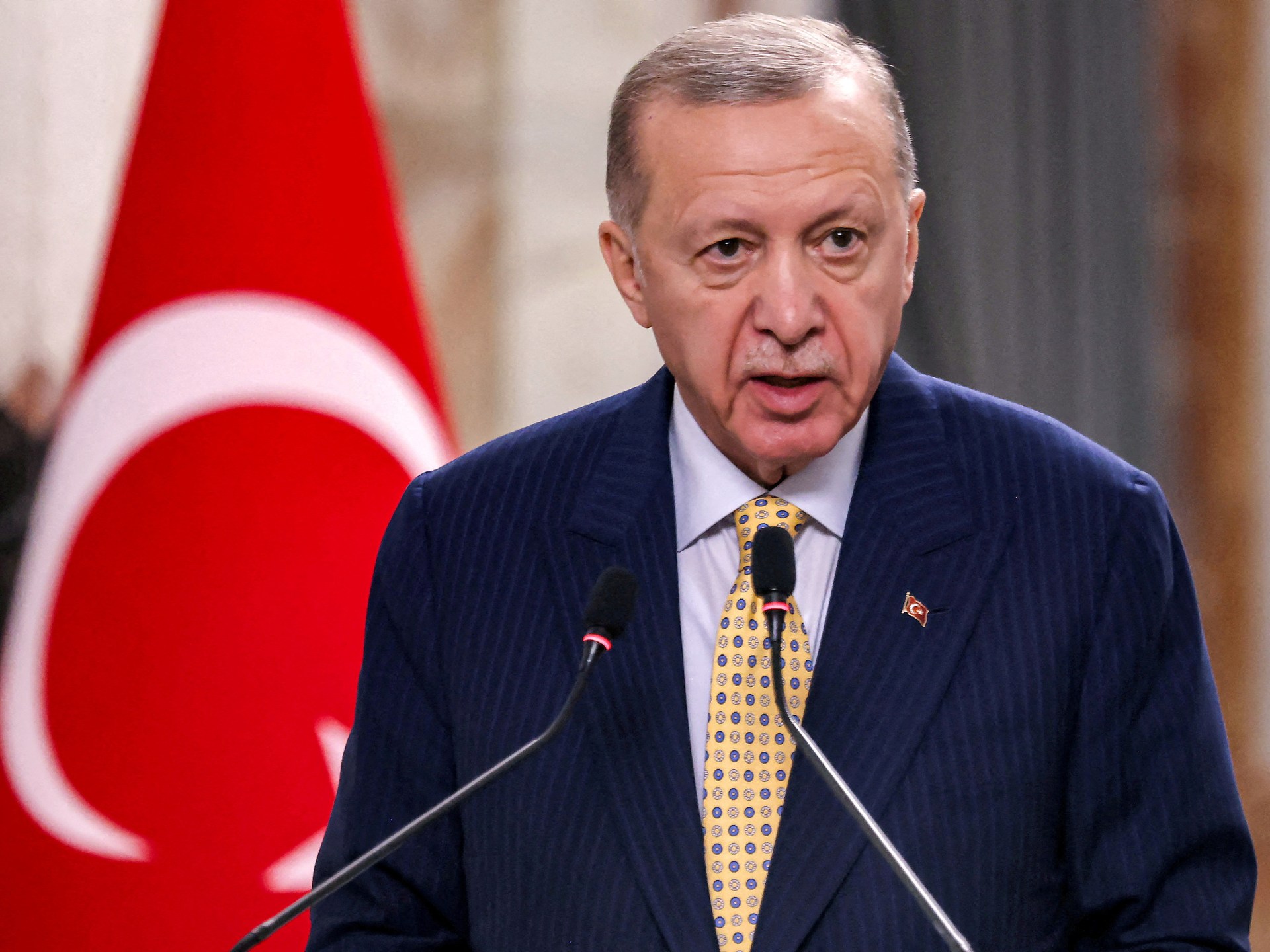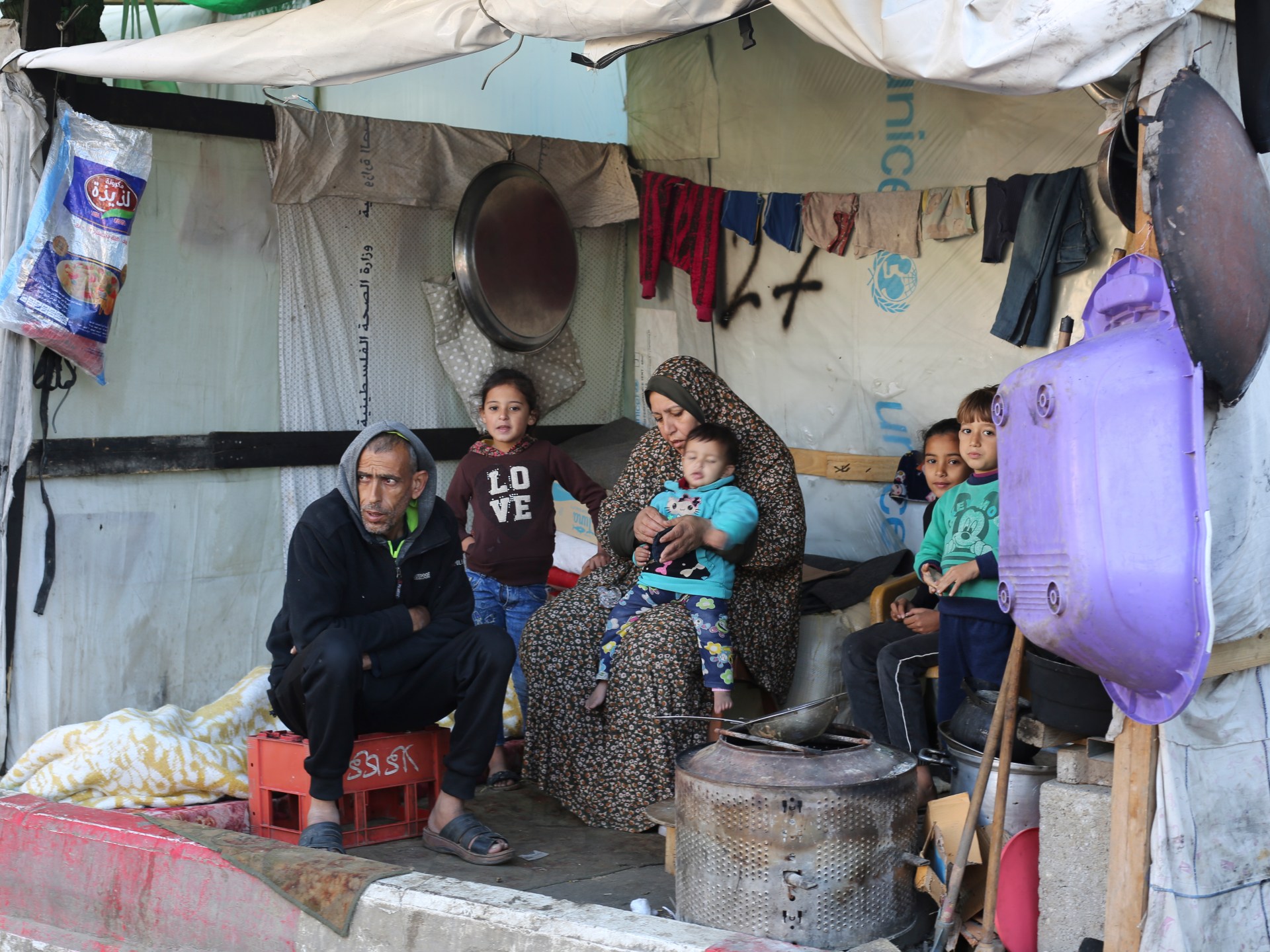The NATO summit in Washington this week was supposed to be a feel-good moment, celebrating the alliance’s 75th anniversary amid moving tributes to an enduring cornerstone of Europe’s postwar security architecture.
But despite expressions of solidarity and steadfastness, the North Atlantic Treaty Organization meeting, which begins Tuesday, comes at a time when some of the 32-nation bloc's most senior leaders can be counted among the walking political wounded, and at a grim point in the war in Ukraine, now in its third year.
All this comes as European leaders begin to fully address the possibility of a new presidential term for likely Republican nominee Donald Trump, who has suggested he would not honor transatlantic treaty commitments, including NATO's founding promise of mutual defense.
Trump declared in February that if an outbreak of hostilities involved members who “don’t pay” — a perennially misleading characterization of the alliance’s finances — he would tell Russia to “do whatever the hell they want.”
The list of leaders of member countries reflects a moment of unrest and agitation on both sides of the Atlantic.
President Biden, the host of the meeting, is facing calls to abandon his re-election bid because of a debate performance in which he appeared frail and weakened.
France was plunged into deep political uncertainty by a mixed result in its parliamentary election that left President Emmanuel Macron's centrists weakened, even though early projections from Sunday's vote indicated French voters rejected a determined bid for power by the far-right National Rally party.
Britain’s new prime minister, Keir Starmer, has just won a landslide general election victory for his Labour Party, but he has yet to be tested on the world stage. German chancellor Olaf Scholz received an unwelcome wake-up call last month when what was once considered a fringe far-right party came second in the country’s European Parliament elections.
Another loss: Alexander De Croÿ, the prime minister of Belgium (whose capital, Brussels, is the headquarters of the alliance) remains in office only as an interim while awaiting the formation of a new government. He resigned after the same European Parliament elections that shook Scholz and Macron with strong results for the far right.
And Russia-friendly Hungarian Prime Minister Viktor Orban, now head of the six-monthly rotating presidency of the Council of the European Union, paid a visit to kyiv, where he urged President Volodymyr Zelensky to agree to a ceasefire on terms the Ukrainians say would be unworkable.
Then, to the EU's dismay, he travelled to Moscow for talks with Russian President Vladimir Putin that the bloc stressed did not meet with its approval.
“Appeasement will not stop Putin,” European Commission President Ursula von der Leyen wrote on the social media platform X.
Even the future head of NATO, former Dutch Prime Minister Mark Rutte, was only eligible to be appointed secretary-general and begin his term in October because he was out of work: the Dutch government he led for almost 14 years is now in the hands of a far-right coalition.
The general air of pessimism threatened to overshadow what should have been a triumphant element of the Washington summit: Sweden's accession to the alliance this year, after Finland joins in 2023 (both Nordic countries are front-line states at a time of high tension with Russia).
Alliance members initially came to Ukraine’s defence after Moscow’s full-scale invasion in February 2022, and continue to provide billions of dollars worth of arms and other aid. But as the war drags on, the European Council on Foreign Relations (ECFR), a think tank that published a major new study on European public attitudes about the war in Ukraine, said cracks were emerging over the nature of the conflict’s outcome ahead of the NATO summit.
“One of the key challenges for Western leaders will be to reconcile conflicting positions between Europeans and Ukrainians on how the war will end,” wrote Mark Leonard, founding director of the ECFR. “While both groups recognize the need for continued military supplies to help Ukraine counter Russian aggression, there is a deep chasm over what constitutes victory and what the purpose of Europe’s support really is.”
Similarly, U.S. public and congressional support for Ukraine — which was initially nearly united in enthusiasm — has shown signs of wavering and declining. Several Republican leaders, as well as Trump, have questioned whether Washington should continue to invest billions of dollars in Ukraine. And an April survey by the Pew Research Center indicated that the percentage of Americans who say the U.S. is spending too much money in Ukraine rose from 7% to 31% shortly after the war there began in 2022.
Three months after formally marking the 75th anniversary of NATO's founding, the alliance's promoters can point to some positive points. Italy's right-wing Prime Minister Giorgia Meloni, in office since October 2022, has shown surprising support for Ukraine and NATO's overall stance.
Turkey, a sometimes problematic ally that had initially been reluctant to allow Sweden into NATO because of disputes over the latter’s dealings with Kurdish separatists, dropped its opposition. And Sweden, a longtime bastion of neutrality, joined the alliance in March.
Just a month before the summit, there were powerful rhetorical reminders of NATO's raison d'être, as world leaders gathered on the beaches of Normandy to mark the 80th anniversary of D-Day, a turning point in the World War II fight against the Nazis.
“We are not far from the moment when the last living voices of those who fought and bled on D-Day will no longer be with us,” Biden said as he paid tribute to the last surviving members of the Allied invasion force.
“We therefore have a special obligation,” he said. “We cannot allow what happened here to be lost in the silence of the years to come.”
Editor Tracy Wilkinson in Washington Contributed to this report.

